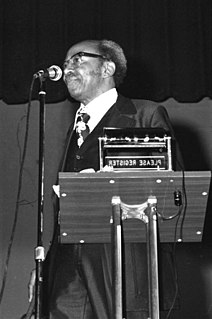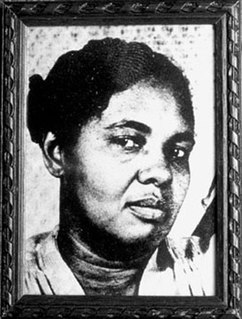 W
WGeorge W. Ashburn was a Radical Republican assassinated by the Ku Klux Klan in Columbus, Georgia for his pro-African-American sentiments. He was the first murder victim of the Klan in Georgia.
 W
WThe Battle of Hayes Pond or Maxton Riot was an armed confrontation between members of the Ku Klux Klan and the Lumbee Native Americans at a Klan rally near Maxton, North Carolina, on the night of January 18, 1958. Grand Dragon James W. "Catfish" Cole was the organizer of the Klan rally. Sanford Locklear, Simeon Oxendine and Neill Lowery were leaders of the Lumbee who attacked the Klansmen and successfully disrupted the rally.
 W
WRufus Brown Bullock was a Republican Party politician and businessman in Georgia. During the Reconstruction Era he served as the state's governor and called for equal economic opportunity and political rights for blacks and whites in Georgia. He also promoted public education for both, and encouraged railroads, banks, and industrial development. During his governorship he requested federal military help to ensure the rights of freedmen; this made him "the most hated man in the state", and he had to flee the state without completing his term. After returning to Georgia and being found "not guilty" of corruption charges, for three decades afterwards he was an esteemed private citizen.
 W
WThe lynching of Michael Donald in Mobile, Alabama on March 21, 1981, was one of the last reported lynchings in the United States. Several Ku Klux Klan (KKK) members beat and killed Michael Donald, a 19-year-old African-American, and hung his body from a tree. One perpetrator, Henry Hays, was executed by electric chair in 1997, while another, James Knowles, was sentenced to life in prison after pleading guilty and testifying against Hays. A third man was convicted as an accomplice, and a fourth was indicted but died before his trial could be completed.
 W
WCharles Kenzie Steele was a preacher and a civil rights activist. He was one of the main organizers of the 1956 Tallahassee bus boycott, and a prominent member of the Southern Christian Leadership Conference. On March 23, 2018, Florida Governor Rick Scott signed CS/SB 382 into law, designating portions of Florida State Road 371 and Florida State Road 373 along Orange Avenue in Tallahassee as C.K. Steele Memorial Highway.
 W
WFrom the mid 1960s until the late 1980s, Chicago's Marquette Park was the scene of many racially charged rallies that erupted in violence. The rallies often spilled into the residential areas surrounding the park.
 W
WHarriette Vyda Simms Moore was an American educator and civil rights worker. She was the wife of Harry T. Moore, who founded the first branch of the National Association for the Advancement of Colored People (NAACP) in Brevard County, Florida. Her and her husband's murder was the first assassination to happen during the civil rights movement, and the only time a husband and wife were both killed for their activism.
 W
WHarry Tyson Moore was an African-American educator, a pioneer leader of the civil rights movement, founder of the first branch of the National Association for the Advancement of Colored People (NAACP) in Brevard County, Florida, and president of the state chapter of the NAACP.
Lemuel Augustus Penn was the Assistant Superintendent of Washington, D.C. public schools, a decorated veteran of World War II and a Lieutenant Colonel in the United States Army Reserve who was murdered by members of the Ku Klux Klan, nine days after passage of the Civil Rights Act of 1964.
 W
WJohn W. Stephens was a state senator from North Carolina. He was stabbed and garroted by the Ku Klux Klan on May 21, 1870. This killing began the Kirk–Holden war.
 W
WThe Tulsa race massacre took place on May 31 and June 1, 1921, when mobs of white residents, many of them deputized and given weapons by city officials, attacked black residents and businesses of the Greenwood District in Tulsa, Oklahoma. It has been called "the single worst incident of racial violence in American history." The attack, carried out on the ground and from private aircraft, destroyed more than 35 square blocks of the district—at that time the wealthiest black community in the United States, known as "Black Wall Street".